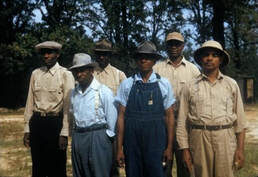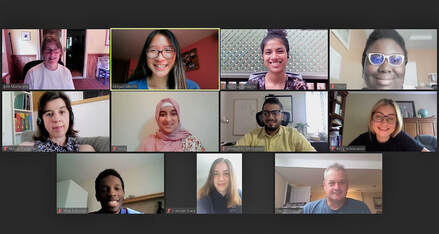 Participants in the Tuskegee Syphilis Study. (Credit: National Archives) Participants in the Tuskegee Syphilis Study. (Credit: National Archives) By Mysa Myers, 4th year Cognitive Science For as long as I’ve been a Carleton student, maybe even before then, I’ve always been interested in research ethics. I’m curious about noble and selfish motives alike for research studies, but I specifically want to understand why controversial studies were carried out the way they were. It sickens me when I read researcher and subject accounts of projects such as Unit 731, the Tuskegee trials and Mengele’s experiments, but I do it anyway in the hopes of answering a seemingly meaningless question: what made the researchers think this was a good idea in the grand scheme of things?  No matter how many angles I view studies like these at, it’s clear to me that they would have resulted in a catastrophic lose/lose situation for all relevant parties in the long run. Even if some of the acquired data is indeed valuable, history proves that outcomes have more impact than results, especially if they affect the typically minority subject sample. Despite the establishment of research ethics boards over time, a sizable amount of biomedical research still fails to account for the variability of individual differences in populations. Passionate as I am about bioethics, I wasn’t aware of this until I eagerly accepted to take part in the Ethno-Racial Analysis (ERA) Project. I had no idea that to this day, we were still having issues with proper ethno-racial representation in empirical studies. The effects are more subtle, as often as not due to their absence, making them arguably just as damaging as historical human rights violations in the name of science. Biomedical research has a pretty irksome tendency to be exclusive. Even when studies have samples with diverse races and ethnicities, researchers usually lump them all into one group for data analysis. Sure, important results are still reported, but this standardization doesn’t do minority groups much good as far as developing effective treatments is involved. The fact that this is still a problem didn’t dishearten me as I was analyzing fifty genetics studies at once; I saw it coming, as it was apparent that the methodology never changed. At the same time, I was shocked that there didn’t seem to be much effort into making the samples more inclusive or data analyses more precise. For such an apparently progressive field, it was puzzling to see this complacency to the detriment of improving the quality of life of so many people globally. All in all, this experience opened my eyes to realities that don’t seem to be acknowledged by those living in them. I’m proud and grateful to have taken part in the ERA Project, as it gives me hope that if Carleton can start the conversation, awareness will be raised among biomedical researchers more broadly, and the results of research will have positive and appropriate benefits to all people. To some, this may seem to have been a questionable undertaking, reflecting more ideological than empirical concerns, but I don’t see it. Regardless of what views and beliefs scientists maintain, they are scientists first and people second when conducting research. Empiricism is progressive by definition; in order to progress, we must be objective so that we’re far from the only ones to benefit from our work.
0 Comments
Leave a Reply. |
Archives
March 2023
Categories
All
|


 RSS Feed
RSS Feed